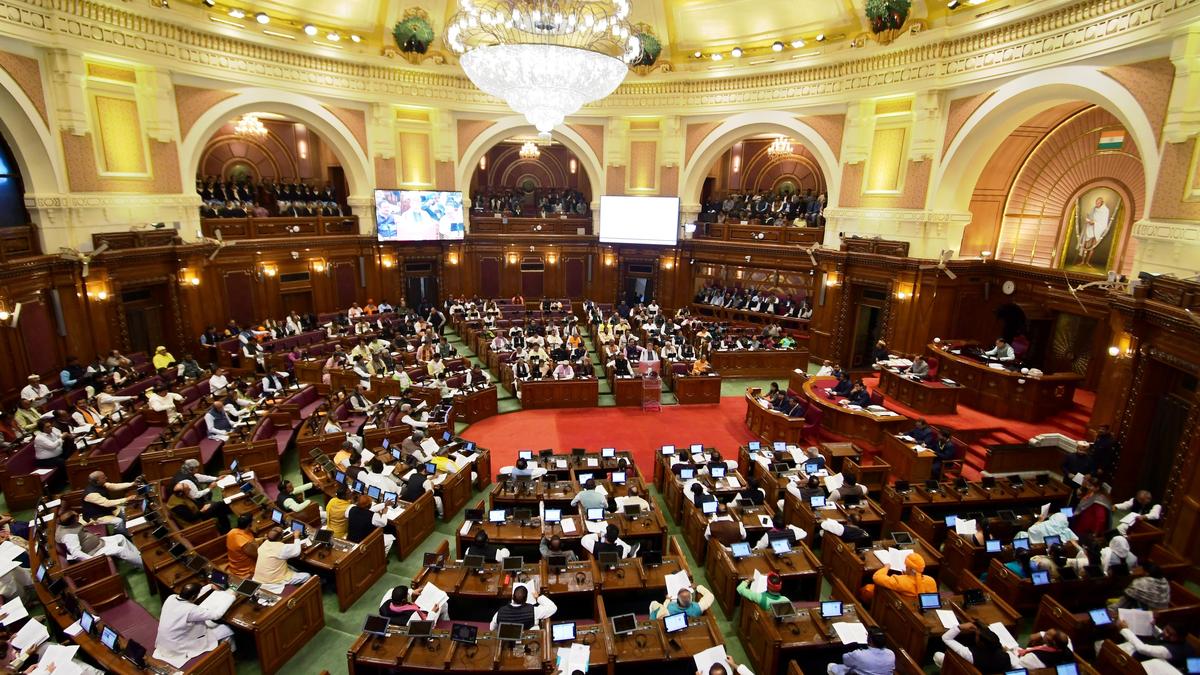Allahabad High Court Strikes Down Madrasa Education Act
The Allahabad High Court recently made a significant ruling, striking down the Madrasa Education Act. This decision has sparked widespread discussions and debates across the nation, particularly among educators and policymakers. The act, which was aimed at regulating and standardizing the functioning of madrasas, has been a subject of controversy since its inception. With the court’s verdict, there are bound to be far-reaching consequences, impacting various stakeholders involved in the realm of education.
The High Court’s decision to invalidate the Madrasa Education Act comes after a series of legal battles and petitions challenging its constitutional validity. The ruling emphasizes the importance of upholding the principles of equality and secularism enshrined in the Indian Constitution. It signifies a triumph for those advocating for religious freedom and minority rights in the country.

Why this News is Important
Implications for Education System:
The striking down of the Madrasa Education Act holds significant implications for the education system in India. It underscores the importance of ensuring inclusivity and diversity within educational institutions. By nullifying a law that sought to regulate religious schools, the court’s decision reaffirms the principles of secularism and educational autonomy.
Legal Precedent:
This ruling sets a legal precedent regarding the interpretation of laws pertaining to religious institutions. It establishes the judiciary’s role in safeguarding fundamental rights and upholding the secular fabric of the nation. The verdict serves as a reminder of the judiciary’s commitment to protecting the constitutional rights of all citizens.
Impact on Minority Rights:
The verdict is likely to have a profound impact on minority rights in India. It reaffirms the constitutional guarantee of religious freedom and safeguards the autonomy of religious institutions. This decision is a victory for minority communities and their right to preserve their cultural and religious identity.
Challenges Ahead:
While the ruling is a significant milestone, it also poses challenges in terms of ensuring quality education and regulatory oversight. With the Madrasa Education Act struck down, there is a need to explore alternative mechanisms for ensuring accountability and standards in religious schools. This presents an opportunity for stakeholders to engage in constructive dialogue and formulate effective regulatory frameworks.
Potential Societal Impact:
The court’s decision is likely to have broader societal implications, shaping public discourse on issues of education, religion, and governance. It highlights the importance of fostering a pluralistic and inclusive society where diverse educational practices are respected and upheld.
Historical Context
The history of madrasas in India dates back centuries, with these religious schools playing a significant role in the education and cultural fabric of the country. Traditionally, madrasas have been associated with the Islamic faith, providing religious instruction alongside general education. Over the years, there have been debates surrounding the regulation and recognition of madrasas, with concerns raised about their curriculum and governance.
5 Key Takeaways from “Allahabad High Court Strikes Down Madrasa Education Act”
| Serial Number | Key Takeaway |
|---|---|
| 1. | The Allahabad High Court invalidated the Madrasa Education Act. |
| 2. | The ruling emphasizes the principles of equality and secularism. |
| 3. | The verdict has significant implications for the education system and minority rights. |
| 4. | It sets a legal precedent regarding the interpretation of laws pertaining to religious institutions. |
| 5. | The decision underscores the need for constructive dialogue and regulatory frameworks in religious education. |
Important FAQs for Students from this News
Q: What was the recent ruling by the Allahabad High Court regarding the Madrasa Education Act?
Answer: The Allahabad High Court struck down the Madrasa Education Act.
Q: What were the reasons behind the controversy surrounding the Madrasa Education Act?
Answer: The act was controversial due to its aim of regulating and standardizing madrasas, raising concerns about religious freedom and minority rights.
Q: What are the implications of the court’s decision for the education system in India?
Answer: The ruling highlights the importance of inclusivity and diversity within educational institutions, emphasizing secular principles and educational autonomy.
Q: How does the verdict impact minority rights in India?
Answer: The verdict reaffirms the constitutional guarantee of religious freedom and safeguards the autonomy of religious institutions, particularly those belonging to minority communities.
Q: What challenges might arise following the striking down of the Madrasa Education Act?
Answer: Challenges include ensuring quality education and regulatory oversight in religious schools, necessitating constructive dialogue and effective regulatory frameworks.
Some Important Current Affairs Links

















